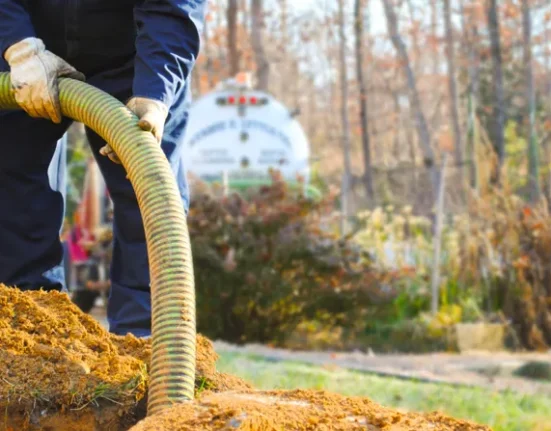In today’s world, energy efficiency is more than just a buzzword; it’s a critical aspect of sustainable living and cost-effective operations. When it comes to the construction industry, including roofing, energy efficiency has become a top priority. Roofing contractors, in particular, play a pivotal role in helping homeowners and businesses save costs and conserve valuable resources. In this article, we’ll explore how roofing contractors contribute to energy efficiency, the benefits of energy-efficient roofing, and the considerations for those looking to enhance their roofs’ energy performance.
The Role of Roofing Contractors in Energy Efficiency
Roofing contractors are integral to enhancing energy efficiency in residential and commercial buildings. Here are some ways in which they contribute:
- Roof Insulation: Roofing contractors help improve energy efficiency by installing high-quality roof insulation. Proper insulation minimizes heat transfer, keeping indoor spaces cooler in summer and warmer in winter. This reduces the reliance on heating and cooling systems, resulting in lower energy bills.
- Cool Roofing: Roofing contractors offer “cool roofing” solutions designed to reflect more sunlight and absorb less heat. These roofing materials, often with reflective coatings, help maintain lower roof temperatures, reducing the heat transferred to the building below. Cool roofing is particularly effective in warm climates.
- Energy-Efficient Roof Design: Experienced roofing contractors can design roofs that optimize energy efficiency. Factors like roof pitch, orientation, and the use of skylights or solar panels are carefully considered to harness natural light and reduce the need for artificial lighting.
- Proper Roof Ventilation: Roofing contractors ensure that roofs have adequate ventilation. Proper ventilation prevents the buildup of heat in the attic, reducing the strain on air conditioning systems. It also helps control moisture, extending the lifespan of roofing materials.
- Inspection and Maintenance: Regular inspections and maintenance by roofing contractors are essential to identify and address issues promptly. Leaks, damaged insulation, or deteriorating roofing materials can compromise energy efficiency. Timely repairs prevent energy losses.
- Sustainable Roofing Materials: Roofing contractors offer sustainable and energy-efficient roofing materials, such as metal roofing, cool shingles, and green roofing systems. These materials are designed to enhance energy performance and reduce environmental impact.
Benefits of Energy-Efficient Roofing
Investing in energy-efficient roofing offers numerous advantages for homeowners and businesses:
- Cost Savings: Energy-efficient roofing can significantly reduce heating and cooling costs. Improved insulation and reflective roofing materials mean less reliance on HVAC systems, resulting in lower energy bills.
- Environmental Impact: Energy-efficient roofing reduces greenhouse gas emissions by reducing energy consumption. It helps combat climate change and lowers the overall environmental footprint of a building.
- Comfort: Proper insulation and ventilation provided by energy-efficient roofing contribute to indoor comfort. Buildings remain cooler in the summer and warmer in the winter, creating a more pleasant living or working environment.
- Durability: Energy-efficient roofing systems are often built to last, which means fewer repairs and replacements. This long-term durability reduces maintenance costs over the life of the roof.
- Resale Value: Homes and commercial properties with energy-efficient roofing tend to have higher resale values. Buyers are attracted to properties with lower operating costs and improved sustainability.
- Compliance and Incentives: Many regions offer incentives, rebates, or tax credits for energy-efficient roofing installations. Compliance with energy efficiency standards may also be required in some areas.
- Reduced Urban Heat Island Effect: Cool roofing materials can help reduce the urban heat island effect, where urban areas experience higher temperatures due to heat absorption by buildings and pavement. This benefit contributes to a more comfortable and sustainable city environment.
Considerations for Enhancing Energy Efficiency
If you’re looking to enhance the energy efficiency of your roof, here are some considerations:
- Roofing Material: Choose roofing materials that offer energy-efficient features. Cool roofing materials with reflective coatings are excellent for reducing heat absorption.
- Insulation: Ensure that your roof has proper insulation to minimize heat transfer. Consider upgrading insulation during roofing projects to improve energy performance.
- Ventilation: Proper roof ventilation is crucial for controlling indoor temperature and moisture levels. Roofing contractors can assess your ventilation needs and make necessary adjustments.
- Solar Panels: Consider the installation of solar panels on your roof. Solar energy is a sustainable and efficient way to generate electricity, reducing your reliance on traditional energy sources.
- Skylights and Daylighting: Incorporate skylights or daylighting systems into your roofing design to maximize natural light and reduce the need for artificial lighting.
- Maintenance: Schedule regular inspections and maintenance with roofing contractors to address any issues that may compromise energy efficiency. Leaks, damaged insulation, or worn roofing materials should be promptly repaired or replaced.
- Local Regulations: Check local building codes and regulations related to energy-efficient roofing. Some areas may have specific requirements or incentives for energy-efficient roofing installations.
- Energy Audits: Consider conducting an energy audit of your home or building to identify areas where energy efficiency improvements, including roofing enhancements, can be made.
Conclusion
Roofing contractors play a vital role in enhancing energy efficiency in residential and commercial buildings. Their expertise in roof insulation, ventilation, materials, and design can significantly impact a building’s energy performance. Investing in energy-efficient roofing not only leads to cost savings but also contributes to a more sustainable and comfortable living or working environment. Whether you’re considering a roof replacement or looking to improve your existing roof’s energy efficiency, collaborating with experienced roofing contractors is a smart step toward achieving your energy goals while conserving valuable resources.









